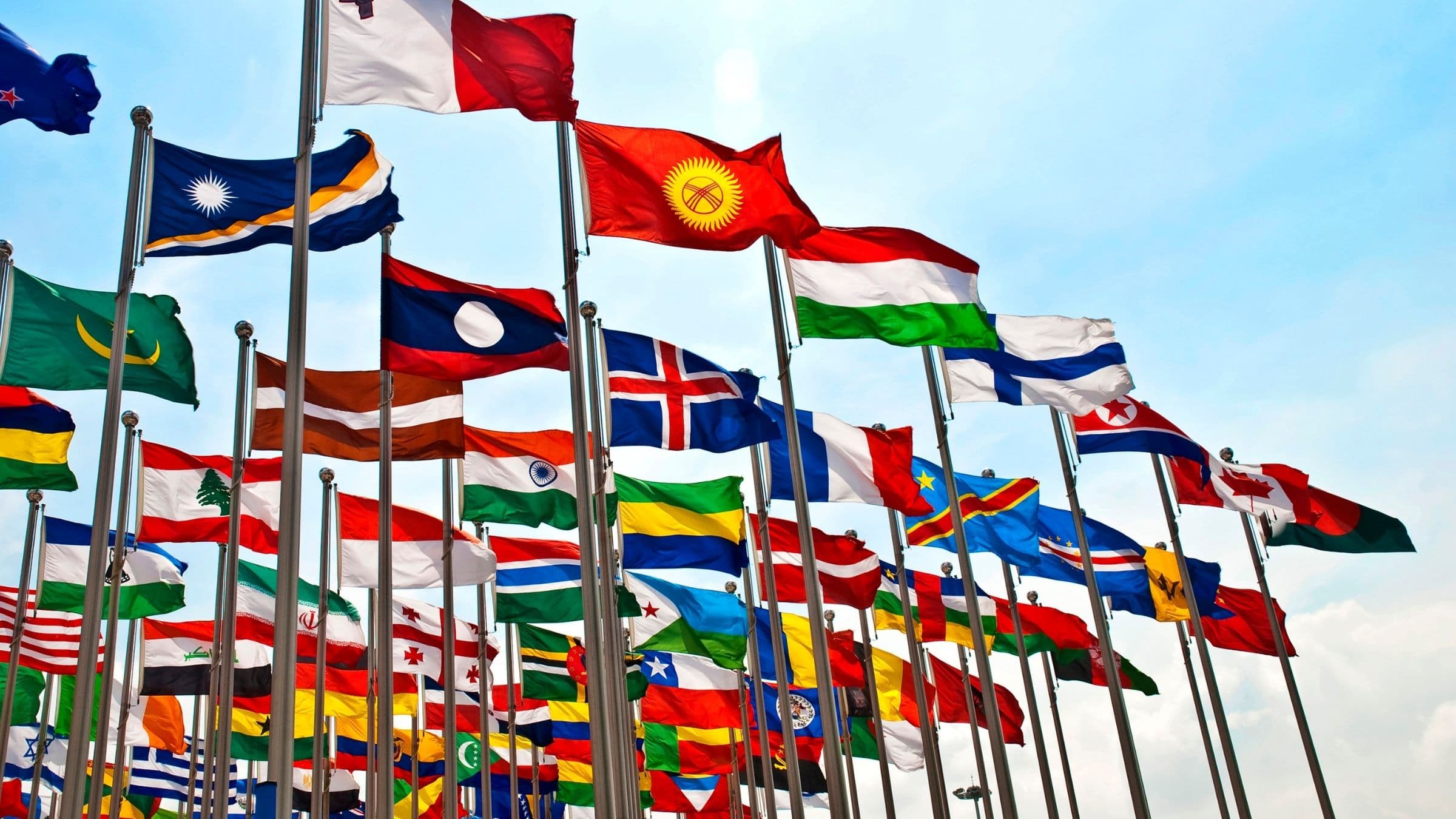
COUNTRY PROFILE
Discover more about the Saudi Arabian market including overviews about the retail, foodservice, and food processing sectors. Events, resources, and more are linked throughout the profile.

2nd
top market for U.S processed foods in the region

$451.1 Million
total of U.S. processed foods imports in 2023
Euromonitor reports that the economy in Saudi Arabia recorded one of the fastest growth rates globally in 2022, driven by elevated oil demand and peaking oil prices, allowing it to boost production and exports. Vast crude oil reserves and relatively small dependence on wheat imports helped to maintain inflation at ease. Looking forward, the government’s budget surplus is set to be sustained, allowing it to invest in strategic projects and achieve wider diversification from the hydrocarbons.
Economic uncertainties and risks have increased, taking a toll on Saudi Arabia’s growth prospects. According to the global stagflation scenario, worse-than-expected global negative spillovers from Russia’s invasion of Ukraine would lead to stagnant global economic growth combined with high inflation (stagflation). Rising geopolitical tensions would negatively impact private sector confidence and cause further disruptions to global energy and food supply, increasing the likelihood of more persistent price pressures. Under this scenario, Saudi Arabia’s economy would expand by 2.4% annually in real terms in 2023 and grow by 2.5% in 2024.
The Center for International Development at Harvard University reported that Saudi Arabia has been focusing on employing its large youth population. The country has one of the highest youth unemployment rates in the world, and over 80% of its private sector consists of foreign labor. The government has taken several steps to make it less attractive for private firms to hire low-cost foreign labor, as it continues to face rising female and youth unemployment among nationals. However, despite concerted policy efforts, by 2010, the region had failed to improve employment outcomes for its youthful population. It is an urgent need to assess past policy failures and to reenergize efforts to address the youth employment challenges.
Saudi Arabia’s population is growing at a brisk pace. The total number of inhabitants was 35.9 million in 2023 (CIA World Factbook Est.) – an increase of 15.2 million since 2000. By 2030, the country will be home to 39.3 million – more than four times the total for 1980. Although the population is still relatively young, an ageing process is underway. The median age was 30.6 years in 2023, up from 21.8 years in 2000. 4.2% of the Saudi population or about 1.5 million are over the age of 65.
Euromonitor reports that Saudi Arabia boasts the largest economy in the Middle East and North Africa (MENA) region, with a GDP of just over US$1 trillion (around a quarter of the MENA total). Saudi Arabia’s relatively large population will support the development of the consumer market, as will comparatively high incomes in a regional context. Gross income per capita is expected to increase by 14.6% in real terms over the forecast period, while average annual gross income of US$16, 878 will be the seventh highest in the Middle East North Africa (MENA) region in 2040.
FAS Post Riyadh reports that there are plenty of opportunities for a wide range of new-to-market U.S. food products; especially, healthier products aimed at a generation with more disposable income. Unfortunately, there are also significant impediments to trade including burdensome export facility registration requirements along with numerous halal related restrictions on meat and poultry. Despite these issues, U.S. food products are well-positioned to meet Saudi Arabia’s changing dietary habits and food security needs over the next several years.
The Kingdom of Saudi Arabia is an active importer of U.S. processed foods as well, the top market in the GCC-6 bringing in some US$533.8 million in 2022, an increase of 16% from the prior year. In 2023 U.S. processed food exports have declined 16% to US$451.1 million, dropping them to second in rank after the UAE. This equates to US$82.7 million, which adds to the U.S. trade deficit in food and agricultural products.
Top U.S. processed food exported to Saudi Arabia in 2023 included:

$22.9 Billion
estimated total of retail sales of packaged food products in 2023

25.9%
increase in retail sales since 2019

$34.2 Billion
estimated in sales of packaged food products by 2028
Euromonitor has estimated 2023 retail sales in the Saudi packaged food market to be US$22.9 billion, making them by far the largest market in the GCC-6. That also represents an increase of 25.9% and US$4.7 billion from 2019. They also forecast sales of packaged food in the Saudi market to reach US$34.2 billion by 2028, an increase of nearly US$9.5 billion and 38.4% from 2024. High growth products in the forecast include:
FAS Post Riyadh reports that the traditional retail sector is losing ground to hyper and supermarkets as demand for packaged food continues to increase. Major drivers of this transition include increasing disposable income, a growing population and the creation and expansion of urban centers. Total 2022 retail sales of packaged food were approximately US$50 billion, and of that amount, 52% was generated through traditional channels while 48% came through modern retail channels.
There are no specialized food publications or retail journals in Saudi Arabia and as a result, reliable data on food retailers’ sales and floor space is not readily available. Panda Retail Company: The largest retailer in Saudi Arabia. This publicly traded Saudi company has 230 retail outlets (hypermarkets and supermarkets) in Saudi Arabia. The firm also has two hypermarkets in Egypt and one in Dubai, United Arab Emirates (UAE). Most of the company’s purchases are local, but it also imports directly. Othaim Supermarket Chain: This Saudi company has 227 stores in Saudi Arabia and 46 stores in Egypt. The company has also several wholesale outlets. Most of the company’s purchases are local, but it also imports directly.
BinDawood Holding: This Saudi Company operates a total of 73 stores across the Kingdom of Saudi Arabia (KSA), including the BinDawood and Danube supermarket chains and purchases food products locally as well as internationally. It recently announced that it is filing an IPO. Farm Superstores: This Saudi company has 69 supermarkets in the KSA, and most of the company’s purchases are local. It also imports directly. Al Raya Supermarkets: A Saudi-UAE company with 54 supermarkets in the western and southern regions of the Kingdom. It purchases domestically and imports some staple food products.
Tamimi Supermarkets: An upscale supermarket with 45 branches in Saudi Arabia and one in Bahrain. The company is one of the largest consolidated U.S. food products importers in Saudi Arabia. It is the only Saudi supermarket that currently sells chilled U.S. beef. LuLu Hyper\Supermarkets: A Dubai headquartered retailer operates more than 234 stores across 10 West and Far East Asian countries: UAE (98 stores), Saudi Arabia (49 stores), Oman (30 stores), Qatar (20 stores), Bahrain (13 Stores), Kuwait (11 stores), Indonesia (six stores), Malaysia (six stores), India (five stores) and four stores in Egypt.
Carrefour Saudi Arabia: It is a subsidiary of Majid Al Futtaim of UAE; the exclusive Carrefour franchisee in 38 countries across the Middle East, Africa, and Asia. They have 18 Saudi hyper and supermarkets, and mainly imports from France. FAS Riyadh has helped place some U.S. products in Carrefour. Manuel Supermarket: It is an upscale Saudi supermarket established in Jeddah by the Al Darwish family in 2010. Its first supermarket was inaugurated in October 2010 at the Hira International Mall in Jeddah. Currently, the firm has 12 supermarkets (10 in Jeddah and two in Riyadh)
Lulu, Tamimi, Danube, and Manual Supermarkets (a chain with nine outlets throughout Jeddah) imports a significant percentage of the food products they sell directly from the U.S. LuLu owns and operates Y International USA, Inc.; a U.S. purchasing and logistics company based in Lyndhurst, New Jersey, that will be opening additional U.S. branches. The logistics company sources and exports U.S. food products and consumer goods directly to LuLu in the Middle East and Asia while the other three retailers make extensive use of consolidators. Some products (like blueberries, strawberries, lettuce, cherry tomatoes, and other fresh produce) are shipped by air, but most products are shipped by sea.
FAS Post Riyadh reports that currently, more consumers in Saudi are seeking out the following products: healthier lifestyle products (diet foods, organic etc.), beef, poultry meat, beverage ingredients, non-alcoholic beer, tree nuts, dairy products, plant-based meats, fresh fruit and vegetables, processed fruits and vegetables, fruit and vegetable juices, honey, and snack foods.
FAS Post Riyadh reports that U.S. exports of consumer-oriented food products to Saudi Arabia increased 23% over the past year to a record US$656 million due to expansions in online shopping platforms. In June 2022, the Saudi government fully lifted all COVID-19 restrictions allowing the foodservice sector to return to pre-pandemic operations while also fully reopening the country to foreign visitors. These changes greatly increased the demand for food ingredients and the revenue of the foodservice sector. In 2023, the total value of the Saudi foodservice market was estimated at approximately US$25 billion, and it is projected to grow approximately 10% annually over the next several years.
In 2022, a booming construction sector, continuous changes to social policies, and evolving Saudi lifestyles significantly benefitted the hotel, restaurant and institutional (HRI) sector compared to previous years. The sector experienced a sharp reduction in 2020 due to COVID-19 restrictions but has been growing since early 2021 due to the gradual lifting of those same restrictions. The resumption of food catering services (e.g., weddings and conferences) and the country’s reopening to foreign travelers pushed the HRI sector forward. In July 2022, more than 2 million foreign pilgrims came to Saudi Arabia to perform Hajj rituals; the largest foreigners to come for the ritual after 2019. Most visitors stay near the two holy cities for up to four weeks, providing amble time for the sector to thrive.
U.S. food manufacturers normally sell directly to their Saudi importers/distributors, co-pack for Saudi private label owners, or sell exclusively to U.S.-based consolidators. Major Saudi importers operate well-established Kingdom-wide distribution networks, including cold chain networks, and they sell directly to hotels, restaurants, cafes, institutional customers, and wholesalers. Some Saudi companies that specialize in supplying the HRI sector import a wide range of food products for mass distribution by employing consolidators in the U.S. Often, consolidators are the sole regional agents of major U.S. manufacturers or brand owners covering the entire Middle East and Africa.
Meanwhile, some foodservice companies that operate foreign casual dining or fast-food franchises have regional purchasing offices located outside Saudi Arabia. For instance, McDonald’s uses a Saudi company based in Dubai as its exclusive supplier of imported food products for its Middle East operations. On the other hand, the Al-Ahlia Restaurant Company, which operates KFC, Hardee’s, TGI-Friday’s, Chicken Tikka, Krispy Kreme, Longhorn Steakhouse and Red Lobster in Saudi Arabia, has a regional purchasing office in Cairo, Egypt.
Regional offices are responsible for purchasing foodservice food products and ingredients from approved suppliers worldwide. These and other large fast and casual dining firms import directly, between 30%-85% of their food products. The food products that are directly imported include: beef, poultry, cheese, sauces, French fries, potato wiggles, frying oil, mix buns, ketchup, deserts, salad dressing, seafood (shrimp, salmon, and other fish), and syrup.
U.S. food products are generally viewed as meeting higher quality standards than imports from other countries or those produced locally. Consumers prefer U.S. origin and branded products, and these products benefit from strong demand if they are priced competitively. Some local retailers use shelf talkers and signs to identify U.S. products to impress their customers with high-quality products. U.S. food exports face fierce competition from the improving quality of both locally produced and competitively priced imports from third countries.Food products produced in Gulf Cooperation Countries (GCC) enter Saudi Arabia duty free. Food imported from other Arab countries, Australia, various Asian countries, parts of Latin America, New Zealand and South Africa often offer lower priced products to comparable U.S. products, mainly because of lower shipping costs. Usually, local importers prefer to initiate business deals by making small trial orders; conditions that many U.S. exporters are often not willing or able to accommodate.
FAS Post Riyadh reports that the Saudi HRI sector is constantly seeking suppliers for high quality and competitively priced of high value and intermediate food products such as dairy products, fresh fruit, fresh vegetables, red meats, condiments and sauces, beverage and other coffee shop ingredients baked frozen pastries, and frozen sandwich bread.
FAS Post Riyadh reports that Saudi Arabia is the largest economy in the Arab world and home to a growing food manufacturing and processing sector. Total investments in the sector are projected to reach US$70 billion in 2030, an increase of approximately 59% over total investments in 2016. Saudi Arabia is home to a growing food manufacturing sector that benefits from population and income growth, life-style changes, state support, and favorable trade agreements. Demand for packaged foods is growing and more multinational companies are entering the market as a result. In 2022, Saudi Arabia imported approximately US$3 billion worth of intermediate food products, mostly for further processing. U.S. suppliers provided around 11%, or US$317 million.
Saudi-based exporters do not face tariffs on exports to the six Gulf Cooperation Council (GCC) countries or to the members of the Greater Arab Free Trade Area (GAFTA). This Pan-Arab free trade zone was created in 1997 and has 22 members. As a result, several major companies have built facilities in Saudi Arabia since it accounts for more than 50% of the GCC market. In 2022, Saudi Arabia exported approximately US$1.4 billion worth of food and agricultural products to 63 countries around the world, an increase of 16% from 2021. The main exported products consisted of sugar and sweeteners, non-alcoholic beverages, dairy, processed dates, snack foods, processed foods, honey, and poultry meat. In 2022, Saudi Arabia exported nearly US$10.6 million worth of food products to the U.S. with processed dates accounting for about 56% or $5.9 million, non-alcoholic beverage (19%), bakery products (10%), and other processed foods (15%).
Several globally recognized multinational packaged food producers have been also entering the Saudi food processing sector to overcome the constantly changing and tighter imports regulations and requirements as well as because of more local demand for packaged food and the opportunity to export duty free to other Arab counties. Most of these companies entered the market via joint ventures with Saudi companies, co-packing agreements with Saudi food manufacturers, licensing agreements or by taking over existing Saudi food processing companies.
Multinational companies with a presence in the food processing industry include Mars Inc., Mondelez International, Cargill, Del Monte, PepsiCo, Heinz, Danone Ltd., Arla Foods Amba, Fonterra’s, United Biscuits (UK) Limited, Coro Foods, Unilever, Ülker, and the Lactalis Group.
Large Saudi food processors tend to import directly from exporters, and they typically have access to larger volumes from ingredient suppliers. Examples of these types of producers include edible oil plants, meat and poultry processors, vegetable processors, dairy processors, canned vegetable processors, and other high-value food processors (e.g., tomato paste, jams, honey, confectionaries, snack, juice, and beverages). If the required quantity is less than a full container, processors will usually purchase from local agents, other importers, or wholesalers.
In general, the imported food ingredients market is extremely price sensitive due to stiff competition among supplying countries and most local food processors seek suppliers that provide great quality products at the most competitive prices. As a result, the U.S. faces fierce competition in this sector from various suppliers in the European Union (EU) and parts of Asia, especially suppliers from: Belgium, Brazil, China, Egypt, France, India, New Zealand, and Thailand.
The following is a listing of food products and ingredients that have high export potential in the Saudi food processing market: poultry meat, beef, skimmed milk powder, full cream milk powder, block cheese, butter, milk protein concentrate, anhydrous milk fat (AMF), butter oil, and whey powder.
Other food processing ingredients in demand include margarine, vegetable oil, vegetable fat, grape leaves, spices, fruit pie fillings, seasonings, shortenings, sauces, chocolates, cooking oil, vegetables, dehydrated chicken powder, jam ingredients, tree nuts, tomato paste, legumes, pulses, French fries, wheat, rice, beverage ingredients, bakery and pastry ingredients, juice concentrates, ice cream ingredients, chili sauce, and specialized flours.
